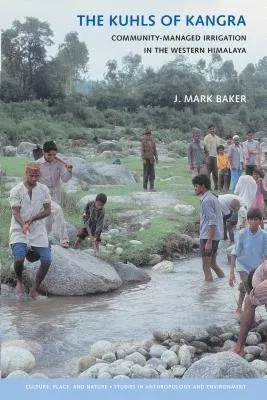In the Kangra Valley of India's western Himalaya, farmers have for
centuries relied on community-managed kuhl systems - intricate networks
of collectively built and maintained irrigation channels - for their
rice and wheat farming. Over the years, earthquakes and floods have
repeatedly destroyed villagers' kuhls. More recently, increasing nonfarm
employment has drawn labor away from kuhl maintenance and from farming
itself. Prevailing theories of common property resource management
suggest that such conditions should cause the kuhls to die out; instead,
most have beentransformed and remain alive and well.
In this book, Mark Baker offers a comprehensive explanation for the
durability of the kuhls of Kangra in the face of recurring environmental
shocks and socioeconomic change. In addition to describing how farmers
use and organize the kuhls, he employs varied lines of theory and
empirical data to account for the persistence of most kuhls (and the
demise of a few) in the late twentieth century. Into his explanatory
framework he incorporates the history of regional politics and economics
as they affected kuhls during the precolonial, colonial, and
postcolonial periods; the role of state involvement in kuhl construction
and management; the benefits of exchanges of labor and water among
members of networked kuhls; and the ways in which kuhl systems are
embedded in and reproduce core cultural beliefs and practices.
Scholars interested in common property resource regimes have long
focused on self-organizing, community-based irrigation systems. Yet
their theories cannot entirely account for the durability of common
property regimes under the extreme conditions of ecological stress,
economic change, and social differentiation that exist in Kangra. Baker
adds new dimensions to such theories by reaching beyond them to
incorporate "exogenous" factors such as the roles statemaking practices
play in common property resource regimes, the importance of networks in
buffering individual resource regimes from environmental stress, and the
ways in which regimes are sites for reproducing and occasionally
contesting the relations that constitute place and region. In doing so,
he advances a new way of thinking about community-based systems of
resource management--a timely subject given recent trends in many
countries toward the devolution of authority over natural resource
management from government to rural communities.

